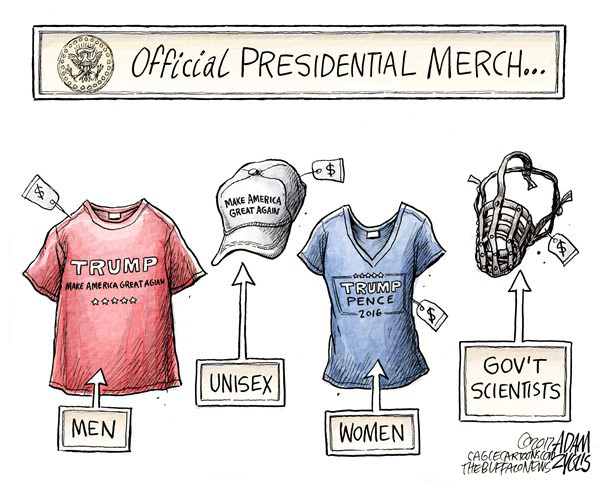Standing Up for Science in the Age of Trump
Research at Our Universities Has Led to Incredible Breakthroughs

Budgets are reflections of our values.
President Trump proposed his 2018 budget for the federal government to members of Congress earlier this year. In it, there are deep cuts to the Environmental Protection Agency (EPA) and the National Institutes of Health (NIH) — which severely impairs the advanced scientific, health, and environmental studies that researchers perform at institutions across the country.
This new budget reflects the president’s lack of understanding and regard for protecting our environment or investing in scientific research. These cuts will not only have an impact on our nation’s economy and national security as a whole, but also specifically for the Central Coast.
Science research at UCSB is an economic driver for our region. In 2016, over $135 million of federal funding was invested into UCSB. The proposed $25.9 billion cut from the NIH budget will affect research programs currently underway at UCSB and at universities and hospitals around the country. The Central Coast cannot afford to lose this critical investment.
On top of the economic factors, research at our universities has led to incredible breakthroughs. I’m proud to have cosponsored the Scientific Integrity Act, which requires each federal agency that funds or conducts scientific research — including the EPA — to establish scientific integrity principles that would prevent attempts to intimidate scientists. Without this funding and support, UCSB would not be able to advance the far-reaching research produced on campus.
David Williams is a postdoctoral scholar at UCSB working to identify ways to mitigate climate change through food production. Recent work by Dr. Williams and his team found that relatively simple changes in what we eat and how we produce food would help protect the environment, while simultaneously helping to ensure that everyone in the world has enough to eat. One of their goals is to help struggling farmers increase their crop yields while at the same time work to safeguard biodiversity, reduce climate change, and increase food security. This requires dedicated research and work from people across the globe. As we work toward addressing today’s problems, we must keep an eye on the future. To do that, it has become increasingly important to stay connected to our global research partners.
For Dr. Williams and many of his peers, the Trump agenda represents a direct threat to vital research. Along with thousands of fellow members of UAW Local 5810, the Postdoc Union at the University of California, he is part of a new wave of scientists pushing back against Trump administration policies that harm research and science.
The president’s disappointing and misguided decision to pull the United States out of the historic Paris Climate Agreement, made between more than 200 nations to reduce our carbon emissions, was a devastating mistake. I have written to the president, along with a bipartisan group of my colleagues, urging him to put us back on course as leaders on the issue of climate change and rejoin this agreement. For our health and economy, California needs strong protections for our coastline, air quality, water resources, and more.
As a member of the House Armed Services Committee, I have heard many of our military leaders, including Secretary James Mattis, discuss the grave risk climate change poses to our national security. Sea level rise is one of the more immediate threats to our military operations and installations, both at home in places like Norfolk and abroad.
Though the outlook may seem dark at times, there are still bright spots in our own state’s leadership to reach out around the world and rededicate its commitment to reducing the effect of climate change in the long run.
California has always been at the forefront of efforts to combat climate change, and that leadership has only been enhanced in the wake of President Trump’s recent decision to pull out of the Paris Climate Accords. Governor Jerry Brown along with most of my colleagues from California in both the House and the Senate are united in the belief that California must uphold the Paris accords. As a state, we will continue to lead by creating alliances with international environmental leaders and funding important research opportunities.
It’s time to debate how to approach a solution to climate change, not about the well-established fact that it is indeed occurring. That is why the first piece of legislation I introduced in Congress was the California Clean Coast Act to prevent future oil drilling off our coast and mitigate the impacts of climate change for future generations. I will work hard to pass this bill and look forward to supporting other legislation to address climate change.
Future generations depend on how we address the issue of climate change today.
If the 2018 budget reflects the values of our nation, I want it to reflect the ongoing fight against the effects of climate change and the strides being made to improve our community through important research.



